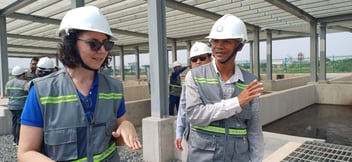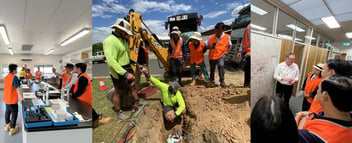Partnerships for a resilient and climate smart water sector
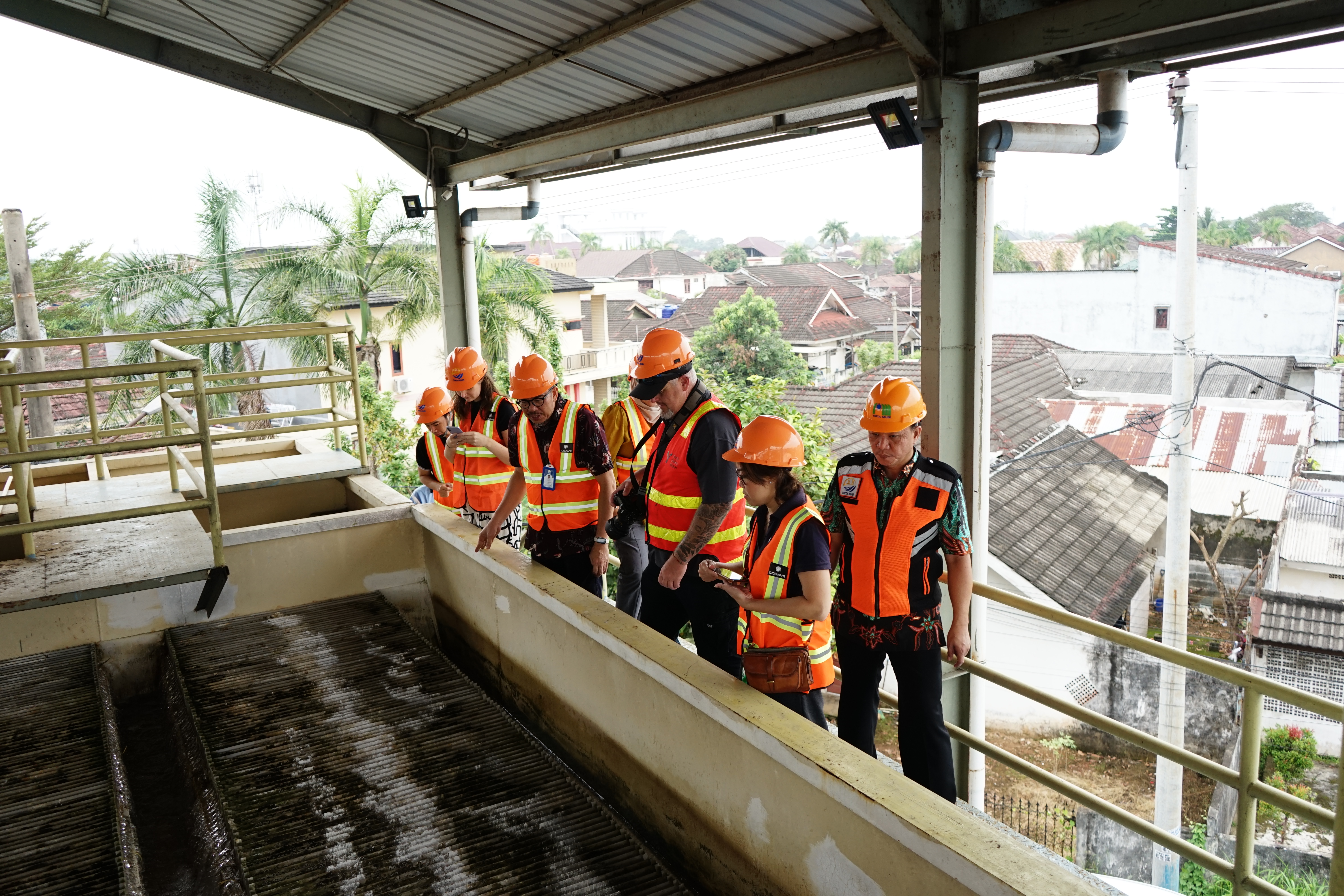
The Australian Water Association (AWA), supported by the Australian Water Partnership (AWP), is driving collective impact for a resilient and climate smart future through partnerships in Vietnam, Indonesia, and the Pacific.
Program Snapshot: The Solomon Islands
In April of this year Sally Armstrong, Head of International and Industry Programs at AWA, was on an island-hopper on her way to Munda, on New Georgia Island in the Western Province of the Solomon Islands. Quickly learning to enjoy flying on smaller planes, Sally was joined by two Goulburn Valley Water representatives, Tony Wulff, General Manager - Technology & Transformation, who happens to be a small-aircraft pilot, and Elise O’Keeffe, District Manager – Central Operations. Together, they were on a fact-finding mission with Solomon Water CEO Ian Gooden and his team to find a solution to a climate change induced problem: saltwater intrusion at a critical island water source due to rising sea levels.
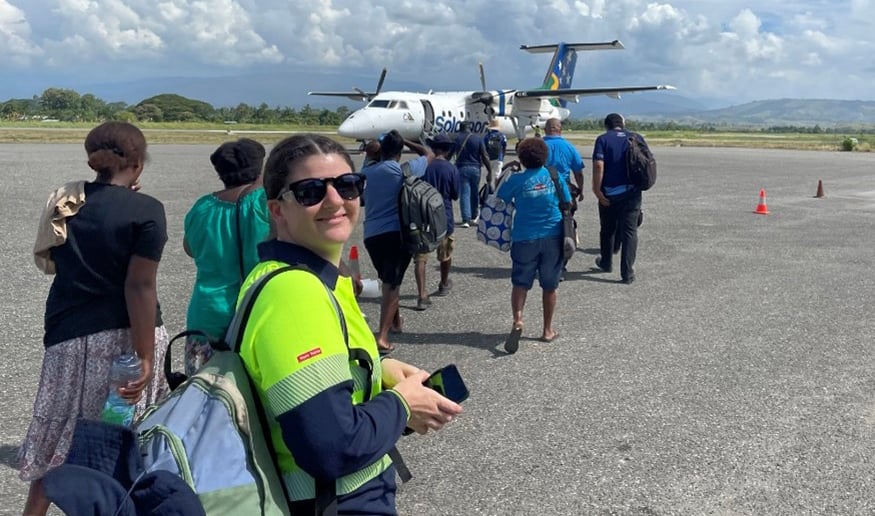
Elise O’Keeffe, GVW District Manager - Central Operations, on the way to Munda, New Georgia Island, Western Province of the Solomon Islands.
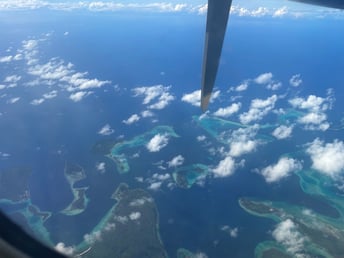
The Solomon Islands, with a population of over 700,000, spread over nearly 350 different islands, faces significant water supply challenges, which are increasing as the climate changes.
During their trip, the team made good inroads, working together to develop a draft action plan to overcome the saltwater intrusion challenge. Then, in early May, two members of the Solomon Water team, COO, Scravin Tongi and Technical Officer, Benjamin Billy, travelled to Ozwater’23 in Sydney to start putting their plans into action. It was the first time Benjamin had been to Australia, and though he was excited to be in Sydney, he spent his time focused on how he could leverage Australian expertise to solve water challenges back home.
At Ozwater’23, with the support of Tony from Goulburn Valley Water, Scravin and Benjamin held several promising meetings with contractors to discuss designs for solutions to the saltwater intrusion challenge. The following week, Scravin and Benjamin joined some of their Solomon Water colleagues for a week-long study tour at Goulburn Valley Water, where they worked together to finalise a year-long collaborative action plan to address not only the saltwater intrusion issue, but also designed interventions to reduce major pressure management issues, which are leading to an unsustainable level of water loss in the Solomon Water network in the capital Honiara.
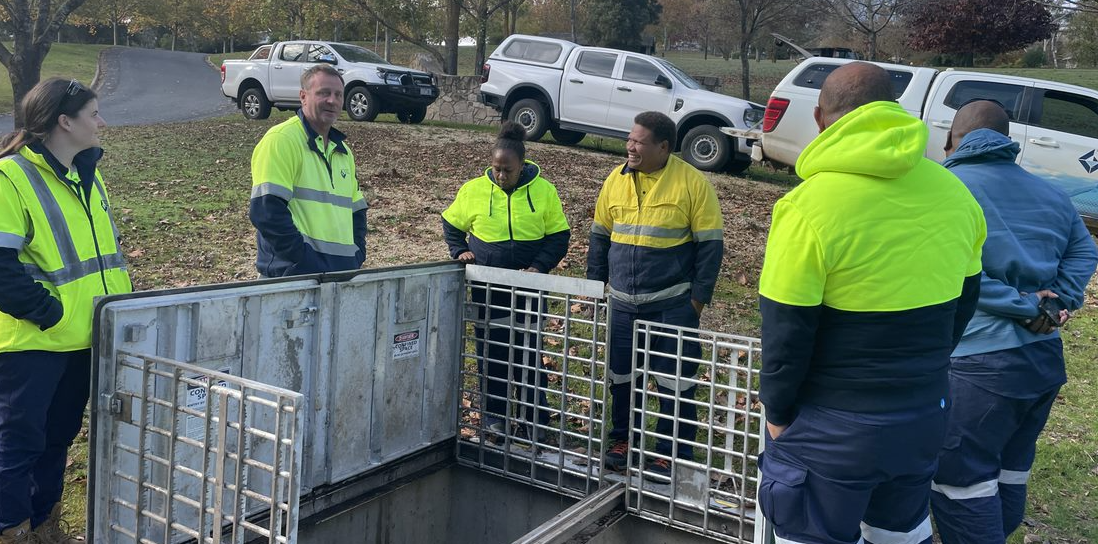
The Solomon Water team learning from the team at Goulburn Valley Water, May 2023.
This partnership, between Goulburn Valley Water and Solomon Water, is just one of six such international partnerships facilitated by AWA’s International Development Program, funded by the Australian Water Partnership (AWP), as part of the Partnerships for a Resilient and Climate Smart Water Sector Program (The Program).
Program Purpose & Goals
The Program is contributing to regional water sector outcomes including improved climate resilient water management, asset management, low carbon futures, energy efficiency, incident management, and business resilience. In line with the Australian Government’s goals of supporting nations in the Indo-Pacific to achieve gender equity commitments under Sustainable Development Goal 5, the Program is also developing strategies and actions for achieving gender equity and social inclusion outcomes in the water sector.
The Program is part of AWA's International Development Program which, with support from the Australian Government, connects AWA's international partners with Australian knowledge and expertise to build sector strength and drive a sustainable water future for all in our region. Building on previously successful international utility partnerships designed and facilitated by AWA, the Program provides a unique opportunity for members of AWA and its international partners to address common water sector challenges and work towards achieving the Sustainable Development Goals (SDGs) in the region.
Ensuring Strong, Sustainable Partnerships
The Program began with a comprehensive scoping phase at the end of 2022, with AWA working with peak water associations in Vietnam, Indonesia, and the Pacific to identify water utilities in Australia and internationally that would make strong candidates to join the Program as partners.
Sally Armstrong shared how important it is to do the groundwork in programs like these, making sure that the needs of international partners are well matched with the support that Australian partners might be able to contribute:
“Each partner we work with, whether that be in the islands of the Pacific, or the Mekong delta, has specific needs, opportunities, and challenges. The core of our work is deeply understanding these so we can connect them with the support that is going to help most, whilst also creating amazing two-way learning and leadership experiences for all involved.”
In Vietnam, working with the Vietnam Water Supply and Sewerage Association (VWSA), AWA identified Hoa Binh Clean Water Company in the north as a strong match, or ‘twin’ with the Cassowary Coast Regional Council, based in northern Queensland, and the needs of Can Tho Water Supply and Sewerage Company (WASSCO) were aligned with the capacities of the southeast Queensland based Urban Utilities.
In Indonesia, working with the Indonesian Water Supply Association (PERPAMSI), AWA matched PT. Air Minum Giri Menang, (based in Lombok) with TasWater, and Tirta Musi Palembang City with Yarra Valley Water (Victoria).
In the Pacific, AWA worked with the Pacific Water and Wastewater Association (PWWA) to partner Solomon Water and Goulburn Valley Water from Victoria (as highlighted above), as well as the Tonga Water Board with Unitywater from southeast Queensland.

Senior leadership of VWSA, PERPAMSI, AWA, PWWA, and the Cambodian Water and Wastewater Association (CWA) discussing the importance of international partnerships for climate resilience in the water sector on a dedicated panel at Ozwater’23 in Sydney.
Two-way Learning and Benefits
To date, in addition to Goulburn Valley Water’s visit to the Solomon Islands highlighted above, the Program has seen Australian utility partners from Unitywater, Cassowary Coast Regional Council, Urban Utilities, TasWater, and Yarra Valley Water join study tours to their twinned locations in the Pacific, Vietnam, and Indonesia. These visits, which followed the earlier scoping and matching by AWA, provided opportunities for the partnered utilities to begin to build strong, respectful relationships, and get to know each other’s needs and capacities, before starting work developing a shared action plan to guide their collaboration throughout the next year of their partnership.
As Greg Bailey from the Unitywater team’s experience with the Tonga Water Board shows, there are benefits for both the Australian and International partners in the Program:
“I’ve made new friends and connections within our own company that I wouldn’t have had the opportunity to do, and being able to share my knowledge and use my qualifications to benefit another utility is very exciting to see what positive impact it may have on their future day-to-day operations.”
For Australian utility partners, participating in programs like this is often eye-opening, and provides opportunities to deepen their commitment to work in the water sector, both in Australia and abroad. Amanda Binks of Unitywater shared the following after her trip to work alongside Tonga Water Board:
"One of the biggest impressions I'm left with is the things we share as water industry professionals – the passion, commitment, and level of care for the people we serve. Our Tongan colleagues have a commitment to excellent customer care and to ensuring safe water supply 24/7 - a mission familiar to Unitywater.”
Amanda and Greg, along with their colleague Taryn Colless and other team members at Unitywater, will be working with Tonga Water Board over the next year as part of the Program to share tools and approaches to ensure this level of service can continue in the face of climate disasters, and to learn from Tonga Water Board’s successful track record responding to tsunamis and volcanic eruptions.
For international partners, participation in the program has already led to Australian based study tours, participation and presentations at Ozwater’23 (Sydney), and the development of action plans to work with their Australian partners on some of their big challenges. Looking ahead, to support implementation of the action plans, AWA will facilitate regular online meetings and knowledge exchange workshops, additional international and Australian-based study tours, and the sharing of learnings and outcomes from the Program at Ozwater’24 in Melbourne.
For Elisiva Tapueluelu, Deputy CEO – Administration of Tonga Water Board, who recently presented at Ozwater’23 as part of the Program, then joined a study tour to Unitywater, the Program has already lead to much new learning, as well as some strong new relationships:
"Partnerships like this are really useful as they encourage external engagement and support us to think creatively to solve the increasing climate challenges that we have. During AWA’s study tour to Tonga, we were also blessed to have AWA CEO Corinne Cheeseman join us. This was a great opportunity for us to talk about organisational strategy to achieve our priorities.”
Sharing Water Sector Learnings for Collective Impact
As the engagement between the Program utility partners deepens, and as they work towards the goals outlined in their action plans, AWA will work with its association partners to ensure that the learnings on the ground are shared within their broader networks. AWA, as facilitator, is working with all Program partners to develop capacities and knowledge exchange practices to increase the collective impact of climate resilience initiatives in the water sector across the region. 
A Closer Look at the Program Partnerships and Collaborative Action Plans
Utility Partnerships
After study tours by Australian partners to visit their international ‘twins’, international partner leadership participation at Ozwater’23, and study tours by international partners to their Australian twins, each of the six utility partnerships have developed a comprehensive action plan, including strong monitoring and evaluation processes to gauge program impacts. Outlined below are the key focus areas of each partnership action plan.
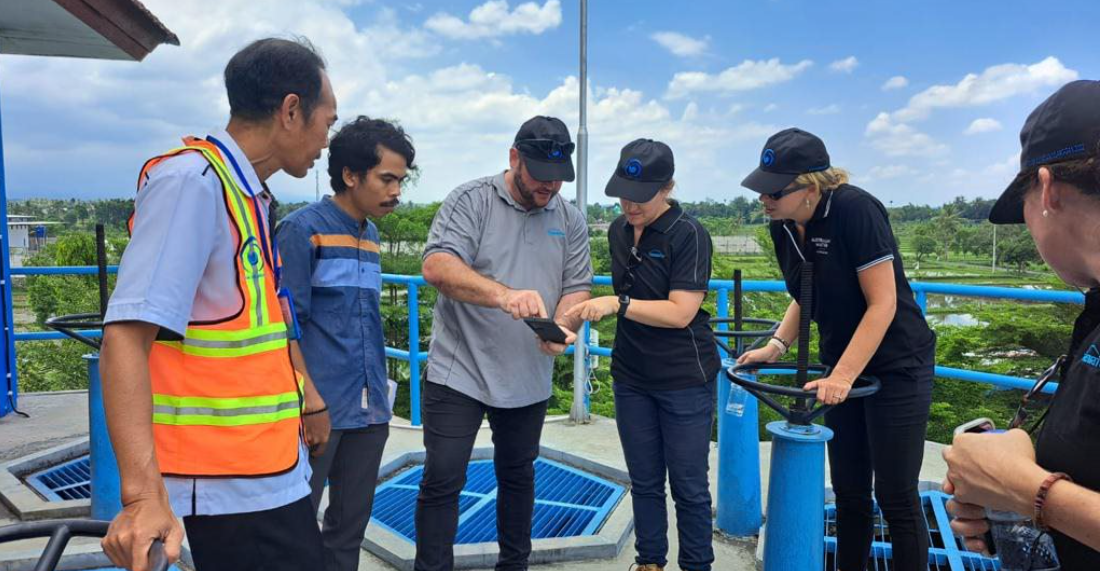 TasWater and PT. Air Minum Giri Menang
TasWater and PT. Air Minum Giri Menang
have identified two priority action areas:
- Building resilient water systems to reduce non-revenue water loss through improving new and existing assets, increase the confidence and capability of Giri Menang to implement new tools, practices, procedures and strategies to reduce non-revenue water and improve water resilience in the water supply system.
- Establishing documented processes for incident management and building capability to respond to climate change related emergencies, increasing the confidence and capability of Giri Menang to respond to emergencies in a planned and consistent way.
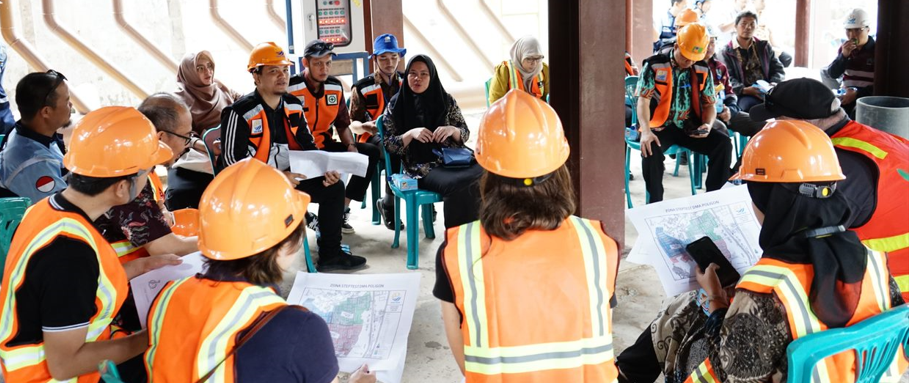 Yarra Valley Water and Tirta Musi Palembang City
Yarra Valley Water and Tirta Musi Palembang City
have identified three priority action areas:
- Building resilient water systems and improving business sustainability through reducing system water losses, increasing capacity to reduce water losses and improve water resilience, decreasing in non-revenue water, and improving asset management and internal knowledge exchange processes.
- Building energy efficiency towards a low carbon future, increasing capacity to implement energy efficiency interventions, improving maintenance and asset management processes, and increasing renewable energy capacity.
- Strengthening business resilience and incident management and responses to climate change related emergencies through wastewater management capacity building, increasing confidence and capability to respond to emergencies and to operate water and sewer networks in a planned and consistent way.
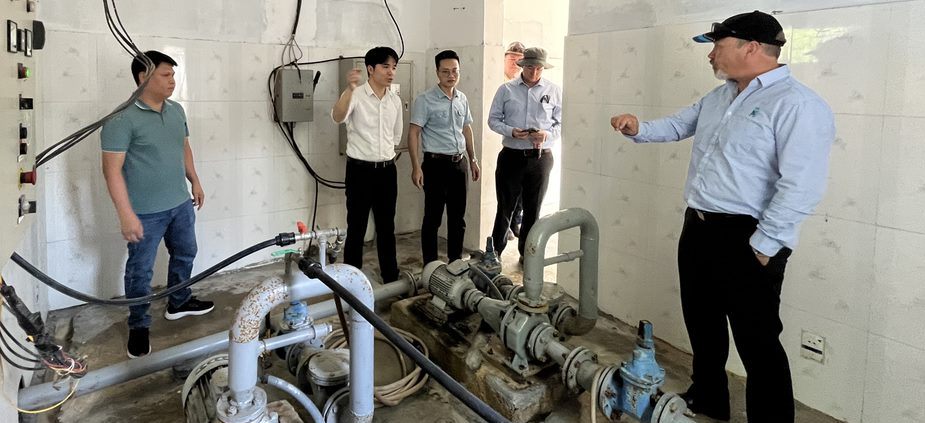 Hoa Binh Clean Water Company and Cassowary Coast Regional Council
Hoa Binh Clean Water Company and Cassowary Coast Regional Council
have identified three priority action areas:
- Building water resilience and climate smart capability through online monitoring of turbidity of water source quality, improving understanding of online turbidity monitoring systems and developing capacity to create a business case for new tools and technologies.
- Building water resilience and climate smart capacities via knowledge sharing to reduce water losses through workshops on equipment and devices including DMAs and smart meters used at Cassowary Coast.
- Building water resilience and climate smart capacity via knowledge sharing to enhance the efficacy of asset management, building asset management capacity, understanding of Australian standards and policies.
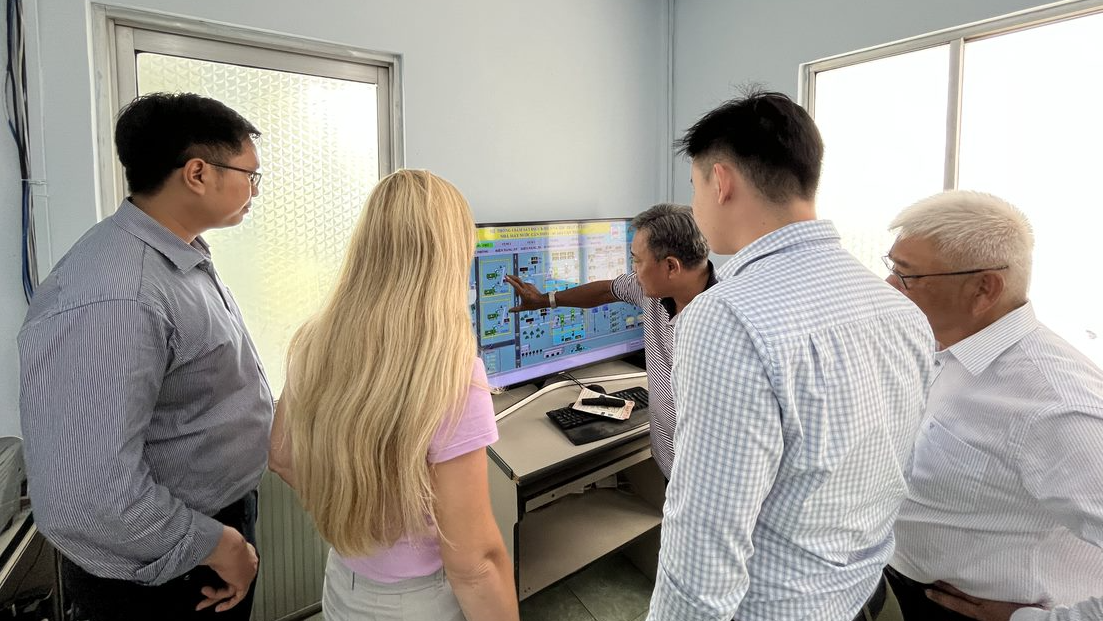 Can Tho Water Supply and Sewerage Company and Urban Utilities
Can Tho Water Supply and Sewerage Company and Urban Utilities
have identified the following two focus areas:
- Building water resilience and climate smart capacities through development of operating strategies and protocols for asset management, developing improved understanding of approaches and tools that can be used for planning strategic asset management.
- Improving water supply operating strategy and protocol development capacity in contexts of variable source water due to climate change, with a focus on end-to-end online monitoring from source to network.
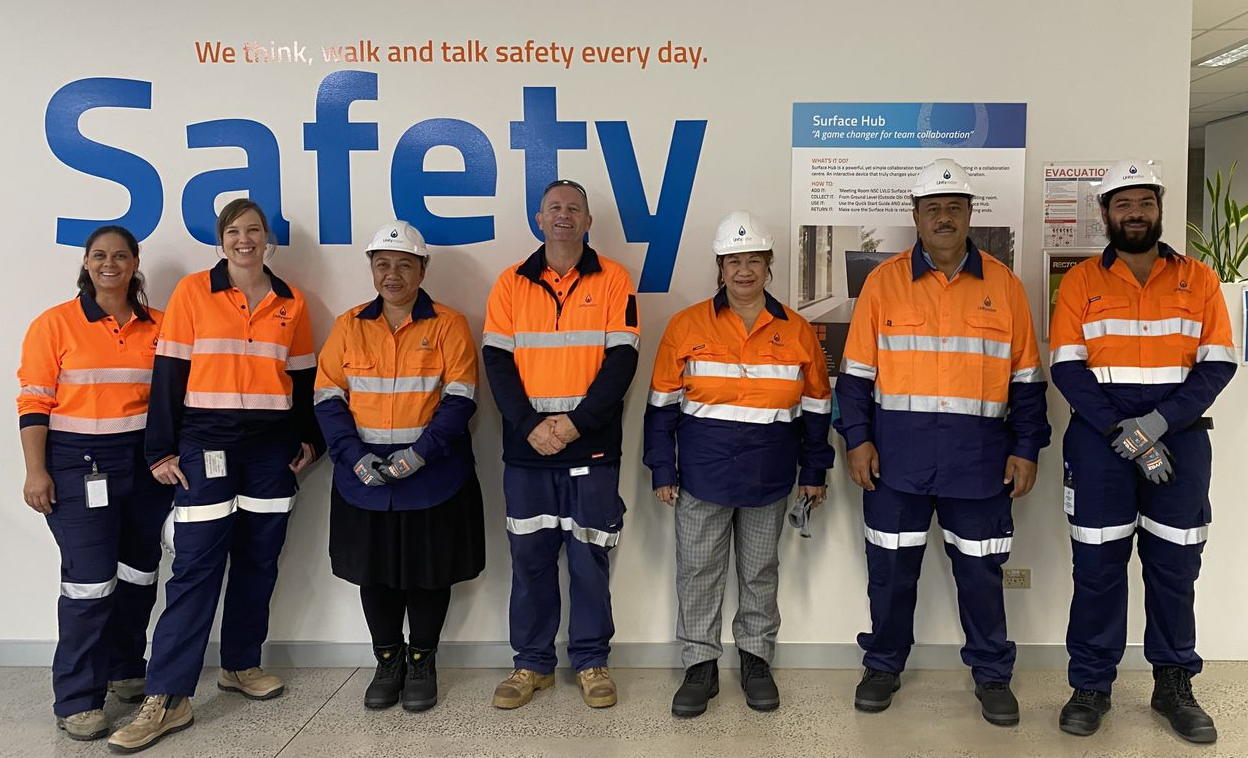 Tonga Water Board and Unitywater
Tonga Water Board and Unitywater
have identified the following two priority action areas:
- Enabling sustainable and resilient water supply through commissioning and asset management framework development of TWB solar farm to provide reliable and sustainable power, developing understand of the risks of the solar farm project, and developing solar farm management capacity.
- Climate proofing and resilience through increasing capability for disaster preparedness and response, increasing confidence and capability to respond to incidents in a planned way to improve resilience and recovery from disasters such as cyclones, volcanic eruption, earthquakes and Tsunamis.
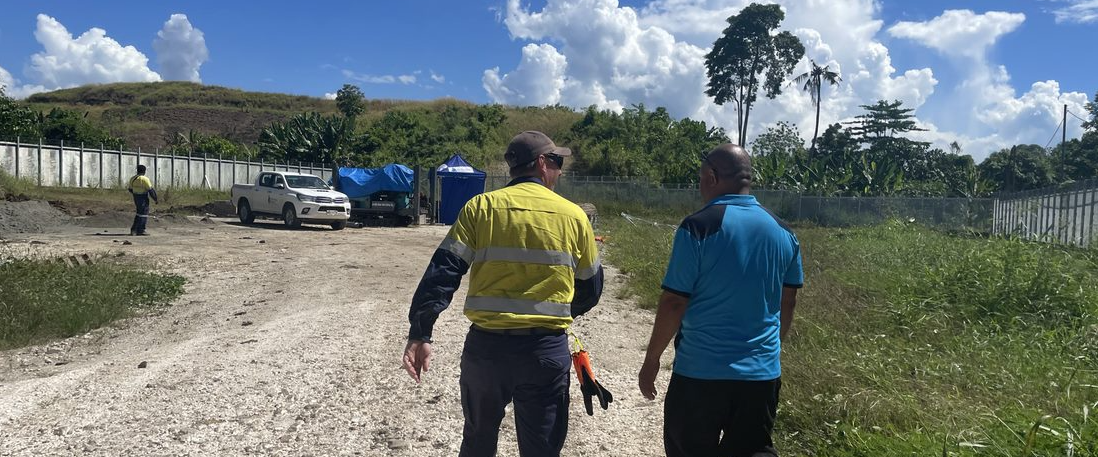 Solomon Water and Goulburn Valley Water
Solomon Water and Goulburn Valley Water
have identified the following three priority action areas:
- Climate resilient asset management practices: co-design of solution to reduce saltwater ingress at the Noro water source, reducing water supply interruptions due to high tide events for 5000 residents and 3 major commercial customers (cannery, port and national fisheries development). Additionally, reducing financial losses for Solomon Water due to increased capability to provide continuous supply.
- Climate resilient water management: reducing physical water losses from the water network, reducing pipe bursts, improving water supply reliability and pressure for customers, and improved pressure management capabilities.
- Improved business resilience: improving financial position re-designing the meter to cash (billing) process, through improving cash flow, revenue process efficiency and decision making, and reduction in overdue accounts.
Association Partnerships
In addition to the utility-utility partnerships, AWA is ‘twinned’ with the three associations taking part in the Program. The associations are the principal partners in the Program, working with AWA to initially identify strong utility candidates to take part, and then working with AWA to support the implementation of action plans, and sharing of Program learnings amongst their members and networks. As with the utility partnerships, AWA has developed action plans with each of the participating associations to identify areas that AWA can support association capacity building. These focus areas are outlined below.
.png?width=2058&height=1372&name=MicrosoftTeams-image%20(34).png)
Leaders of AWA partner associations VWSA, PERPAMSI, PWWA, and the Cambodian Water and Wastewater Association (CWA) participating in a panel at Ozwater’23 on the importance of partnerships to build climate resilience, facilitated by Katharine Cross, Strategy and Partnerships Lead at AWP, with Sally Armstrong, Head of International and Industry Programs at AWA.
AWA & VWSA
The continuing partnership between VWSA and AWA, cultivated over nearly a decade, has reached a high level of trust, with the two associations engaging in collaborative efforts to facilitate knowledge sharing activities among the four water utilities from Australia and Vietnam. Together, AWA & VWSA have identified the following three priority areas to work on during the Program:
- Enhancing VWSA’s capacity to generate member and water sector insights to represent Vietnam’s water sector with key decision members through improved two-way member communications.
- Enhancing VWSA’s capacity to drive a more inclusive water sector through the development of GEDSI programs including Women in Water and Vietnam YWP network.
- Creating opportunities and providing the platforms for Can Tho WASSCO and Hoa Binh Clean Water Company to share their learnings on climate smart and resilient water management from their partnerships with Urban Utilities and Cassowary Coast Regional Council with the wider water sector.
AWA & PWWA
AWA has an ongoing relationship with PWWA, having worked together in several capacities for several years. However, since this Program has begun, the relationship has strengthened, with the two associations having identified clear pathways to work together to build PWWA’s capability to support its members to achieve a resilient and climate smart water sector. AWA & PWWA have identified the following three priority areas to work on during the Program:
- Develop PWWA’s communications for impact capacity, strengthening trust in PWWA and increasing momentum for a resilient and climate smart water sector.
- Building business resilience in both associations by improving member value through new and existing member offerings to drive a resilient and climate smart water sector.
- Increasing the impact and inclusivity of PWWA’s climate resilience knowledge exchange activities, including at the annual PWWA conference.
AWA & PERPAMSI
Through the collaborative planning and preparation of the outbound study tours to Giri Menang and Tirta Musi, and the time spent together during the study tours, the trust and relationship between the two associations has strengthened as the Program has developed. The association-to-association action plan, whose focus areas are outlined below, has been successfully co-designed, with both organisations committed to achieving clear outcomes over the next 12 months:
- Building business resilience in both associations by improving member value through new and existing member offerings to drive a resilient and climate smart water sector.
- Improving data collection processes to generate member and water sector insights to enhance PEPRAMSI’s capacity to represent Indonesia’s water sector with key decision makers.
- Creating opportunities and providing the platforms for Tirta Musi and Giri Menang to share their learnings on climate smart and resilient water management from their partnerships with Yarra Valley Water and TasWater with the wider water sector.
If you or your organisation are interested in supporting work like this with AWA’s international partners,
reach to us via international@awa.asn.au


